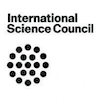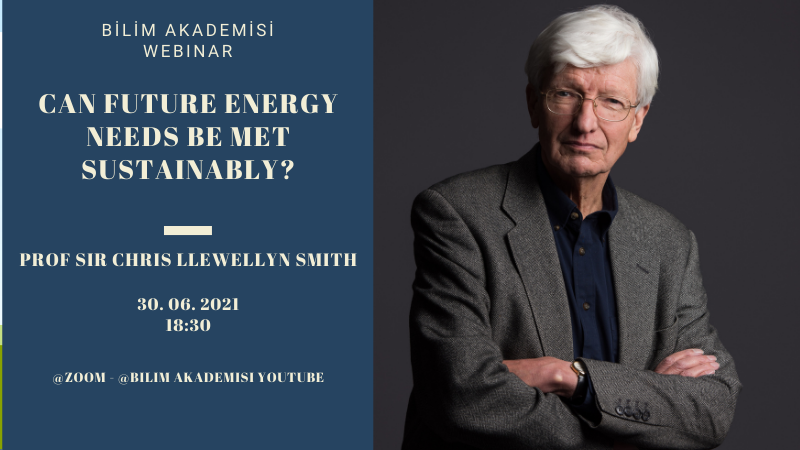“Can Future Energy Needs be Met Sustainably?”
Prof. Sir Chris Llewellyn Smith
(Oxford University; Former Director, CERN))
For webinar registration please click.
The webinar will also be live streamed at Bilim Akademisi Youtube.
Can Future Energy Needs be Met Sustainably?
Global energy consumption is increasing rapidly, driven by rising living standards in developing countries. Energy provided by burning fossil fuels still accounts for over 80% of the total, and is also growing, albeit slowly. This is unsustainable. Decarbonisation is imperative – to moderate climate change, and reduce air pollution – but scenarios that meet the International Panel on Climate Change’s goal of net-zero emissions in the second half of the century all involve heroic technical, economic and political assumptions.
I will review the need to decarbonise and ways to reduce emissions, and identify and discuss ‘stubborn’ (especially hard to decarbonise) sectors. Increased electrification plays a key role in all low carbon scenarios. The rapid fall in the cost of wind and solar power provides grounds for optimism, but integrating them with other low-carbon sources will require large scale energy storage. I will present key findings of a major study that I am leading on how to assess the need for storage, storage technologies and what it may cost. Finally, I will discuss whether the world may be approaching a tipping point.
Professor Sir Chris Llewellyn Smith FRS
Chris Llewellyn Smith is a theoretical physicist. He is currently interested in all aspects of energy supply and demand, especially energy storage (on which he is leading a Royal Society study). Chris has inter alia served as Director of Energy Research, Oxford University (2011-17); semi-executive President of the Council of Synchrotron-light for Experimental Science and Applications in the Middle East (2008-11: SESAME brings together scientists young and old from Israel, Iran, Palestine, Turkey and other countries); and Director General of CERN (1994-1998, when the Large Hadron Collider was approved and construction started). He has written and spoken widely on science funding, international scientific collaboration and energy issues, and served on many advisory bodies nationally and internationally, including the UK Prime Minister’s Advisory Council on Science and Technology (1989-92). His contributions to theoretical particle physics and leadership have been recognised by awards and honours world-wide, including election to the Royal Society (1984), which awarded him a Royal Medal in 2015, and most recently (2019) the American Association for the Advancement of Science’s award for Science Diplomacy and an Hon DSc from the University of Guelph.




